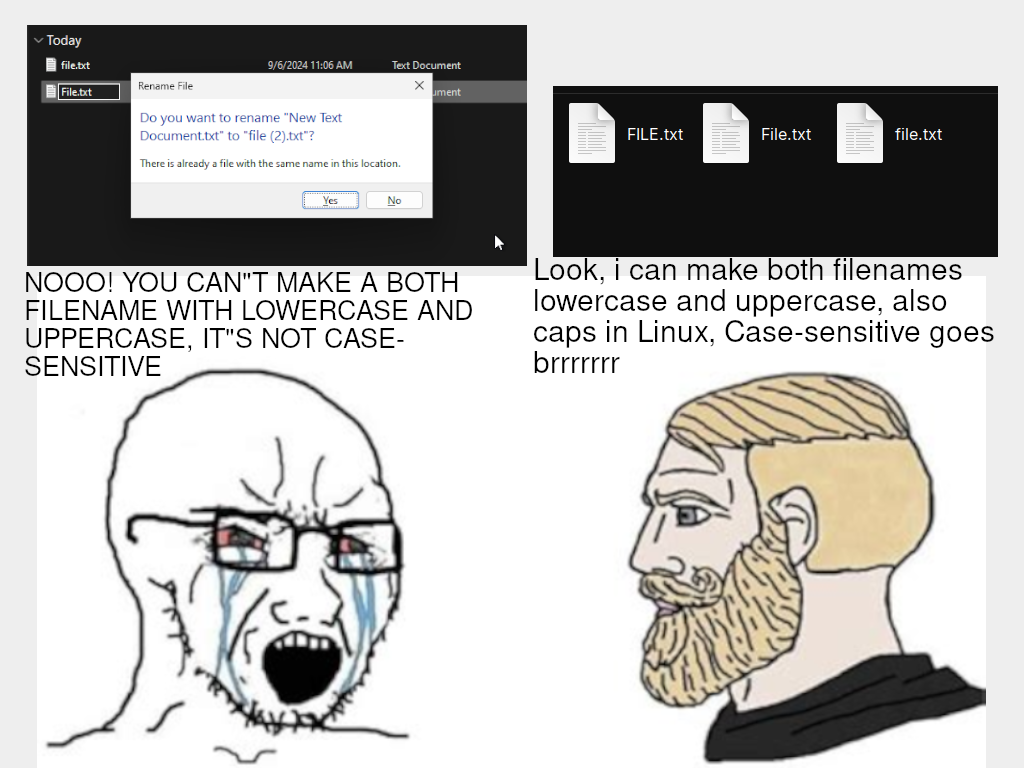this post was submitted on 06 Sep 2024
611 points (90.4% liked)
linuxmemes
21025 readers
294 users here now
Hint: :q!
Sister communities:
- LemmyMemes: Memes
- LemmyShitpost: Anything and everything goes.
- RISA: Star Trek memes and shitposts
Community rules (click to expand)
1. Follow the site-wide rules
- Instance-wide TOS: https://legal.lemmy.world/tos/
- Lemmy code of conduct: https://join-lemmy.org/docs/code_of_conduct.html
2. Be civil
- Understand the difference between a joke and an insult.
- Do not harrass or attack members of the community for any reason.
- Leave remarks of "peasantry" to the PCMR community. If you dislike an OS/service/application, attack the thing you dislike, not the individuals who use it. Some people may not have a choice.
- Bigotry will not be tolerated.
- These rules are somewhat loosened when the subject is a public figure. Still, do not attack their person or incite harrassment.
3. Post Linux-related content
- Including Unix and BSD.
- Non-Linux content is acceptable as long as it makes a reference to Linux. For example, the poorly made mockery of
sudoin Windows. - No porn. Even if you watch it on a Linux machine.
4. No recent reposts
- Everybody uses Arch btw, can't quit Vim, and wants to interject for a moment. You can stop now.
Please report posts and comments that break these rules!
founded 1 year ago
MODERATORS
you are viewing a single comment's thread
view the rest of the comments
view the rest of the comments

The point is you have to take this into account, so the decision to go with a case insensitive file system has ripple effects much further down your system. You have to design around it at every step in code where a string variable results in a file being written to or read from.
It's much more elegant if you can simply assume that a particular string will 1-on-1 match with a unique filename.
Even Microsoft understands this btw, their Azure Blob Storage system is case sensitive. The only reason NTFS isn't (by default) is because of legacy. It had to be compatible with all uppercase 8.3 filenames from DOS/FAT16.